Local Farms, Local Food: Part 7
May 28th, 2018
By Guest Contributors
Upstate Forever's work preserving farmland helps prevent urban sprawl, boosts community health, and contributes to a thriving regional food community.
For our Spring Issue of the Upstate Advocate, we reached out to local farmers, restaurateurs, retailers, and other stakeholders asking them what a thriving local food scene means to them.
Here, in the words of some of the people who know best, are a few reasons why Upstate Forever is working so hard to protect our region's vanishing farmlands. Part 7 of this blog series features thoughts from The Farmacy, the Happy Berry, and Travelers Rest Farmers Market.
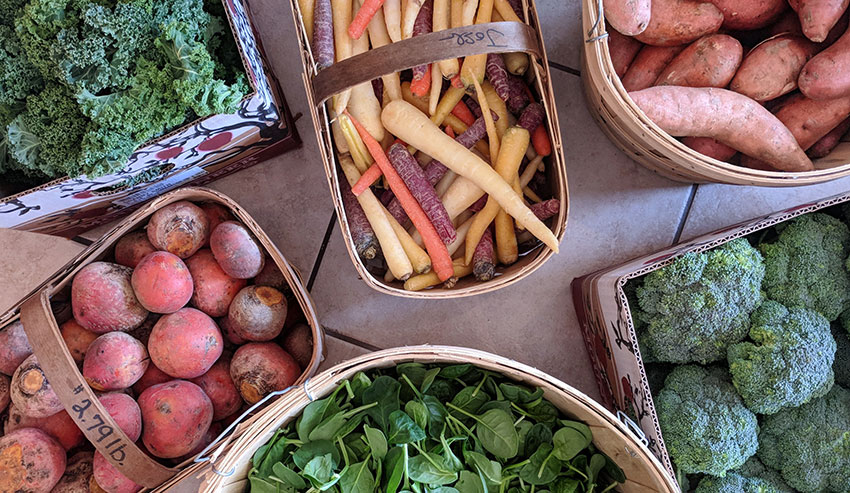
The Farmacy
The Farmacy
What is your organization and how do you see your role in the Upstate’s local food community?
Farmacy is a family owned and operated, farm to public grocery in Easley, SC. We opened in the summer of 2017 from the foundation of our seasonal produce stand we operated for 5 years in Six Mile, SC, The Orange Spot. We provide a 7 day a week resource for our local farmers, makers and crafters to get their goods to the people of Easley and Pickens County at large. We provide all the information to customers on what’s in season, where it’s grown or made, and how to store and prepare it when you take it home. Farmers and vendors come through the door daily with their wonderous bounties! It’s not often the average American can go straight to the farm or even make the 4 hour window of a popular Saturday morning market. It makes a significant impact on the community when folks can meet and shake hands with the ones that grew it. Farmacy, by all intents and purposes, IS community.
What does having a thriving local food/farm scene matter to the Upstate?
Like many states, especially in the South, agriculture is the foundation of our economy. We have such a rich history of farming and the most beautiful natural resources to keep it alive. The amount of farms just in the Upstate alone is astonishing, but yet, still not enough. There are a lot of people here and that number keeps growing. We must invest in, protect and advance our farmers. When our farms thrive, WE thrive. Without them, what would we do? Out-source from who knows where? Lose most of the nutritional value of our foods because it was sitting on a truck for 2 weeks? We can’t sit back and let that happen! The more connection we have to our farms through the outlets of CSA’s, farmers’ markets, locally-sourced grocers, restaurants and food-centric events, our quality of life, health and happiness skyrockets.
Why does it matter to you, personally?
I am a native of Six Mile, SC. Generations upon generations of my family have settled in different areas of our beautiful state. It’s a part of me. I grew up in a household full of love, adventure and a remarkable appreciation for farm fresh food. My parents equally shared the task of cooking for the family and we sat at the table nearly every evening. They instilled in my siblings and me the importance of REAL FOOD. I was always drawn to the kitchen whilst they prepared everything so meticulously. I learned to cook for myself at very young age and fell victim to self-critique, thereafter, as one does. All this, I suppose, was the prequel to what would start as a fun thing on the side to a full-blown career with a mission to provide access to farm fresh produce to Pickens County.
To really touch on why this all matters to me personally, is because, well….food IS personal - a living requirement. Even through all my years of sourcing and selling local produce, there was still a disconnect - something missing. Did I truly understand the struggles of our beloved farmers? That's when I knew I had to see for myself.
I’m now an avid gardener. Definitely not as seasoned as my colleagues, but I’ve prepared many meals from my labor, so I’m mildly successful. It has changed my life in so many positive ways I could’ve never expected. Amending the soil to sow the seed, carefully tending to the plant in all its stages to finally pick the ripened result - quite the utopian moment. Everyone should experience that. The majority of the food I consume is local and for that I am incredibly grateful. I want more people to be able to say that. It will always be an uphill battle. Issues of education, funding, labor, distribution, production costs and access are seemingly never ending. Thankfully, there are many individuals, businesses and organizations dedicated to finding solutions to these problems. I am just a small, but important, piece of the puzzle.
In your opinion, what's the biggest benefit to buying/consuming local food?
Buying and consuming local food has a benefit to both the consumer and the community. In terms of health, the benefits of eating foods that are grown near you and not shipped in a truck and set out for weeks before you eat it are plenty. Fruits and vegetables are meant to be eaten out of the ground. This system of mass and monocrop farming, and transportation of produce are a recent trend that doesn't take into account how it negatively affects the quality of the food. Local food is picked at the correct time. Outsourced, shipped foods are picked early so they can look the part when they arrive at their destination. As soon as a fruit or vegetable is picked, the clock is ticking and the nutrient value decreases quickly, so you want to make sure that you get it onto your plate as soon as possible. It's estimated food travels 1,500 miles from farm to distribution center to plate. Not to mention idle time spent at multiple distribution centers along the route for pickups. Would you let that amount of time pass before you ate something out of your garden?
Buying local food has a ripple effect throughout your entire community. When buying local, your money fuels an economy that benefits you. You are essentially putting money into your neighbors’ pockets as opposed to someone thousands of miles away who will never spend that money in your community again. Example: Farmer A has the best peaches you've ever had. Word gets out and the demand swells. He can't keep up. He needs to hire help and buy a new truck. He hires a local hand and buys an old truck locally. This isn't the end of the chain, just the beginning. Your purchases affect many people when you are conscious of where your food comes from. A thriving community is one that knows how to circulate it's money internally. Alternatively, when you buy non-local you are almost guaranteeing that dollar will never makes its way back to you and your neighbors.
What is your vision for the future of local food/farms in the Upstate?
A decline in the perceived elitism of eating locally. It's not about lowering prices. To ask a Farmer to do so is unreasonable and insensitive. Their production costs are unbelievable, with unpredictable variances and unpreventable losses. It’s about educating the consumer. It may not be a popular topic, but when preventable medical expenses from things like heart disease and type 2 diabetes are killing us, eating farm fresh produce isn't so expensive after all. It's cheaper than a co-pay.
— Jesse Lowery | The Farmacy, Easley | facebook.com/thefarmacyeasley
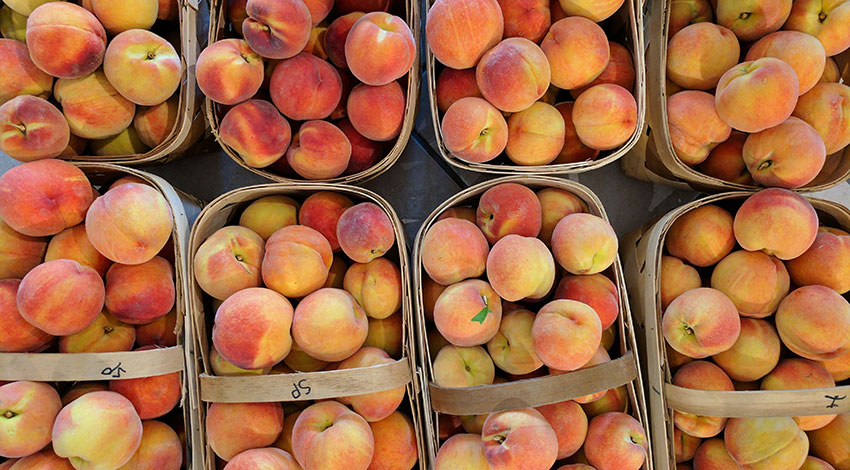
The Farmacy
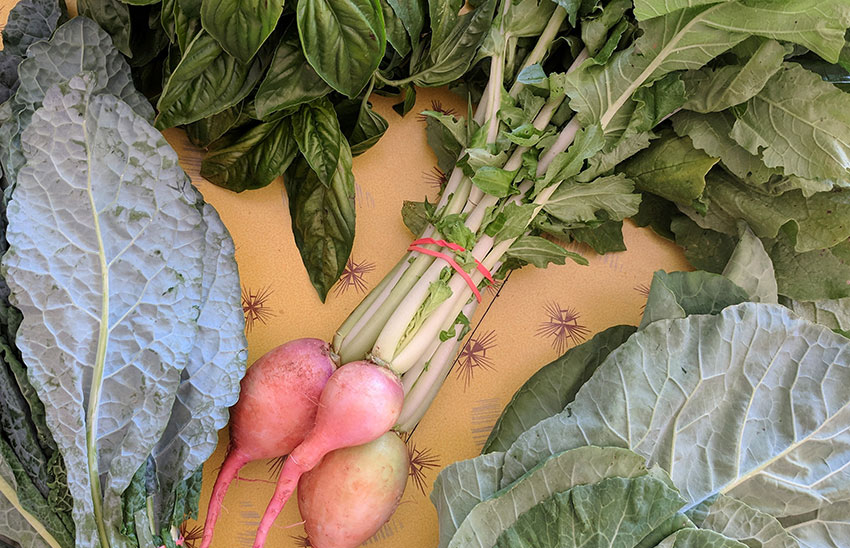
The Farmacy
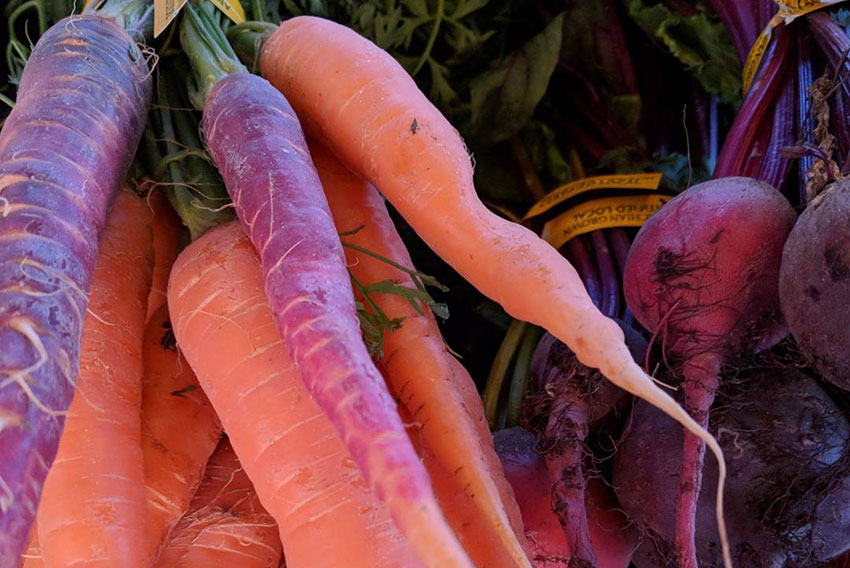
The Farmacy
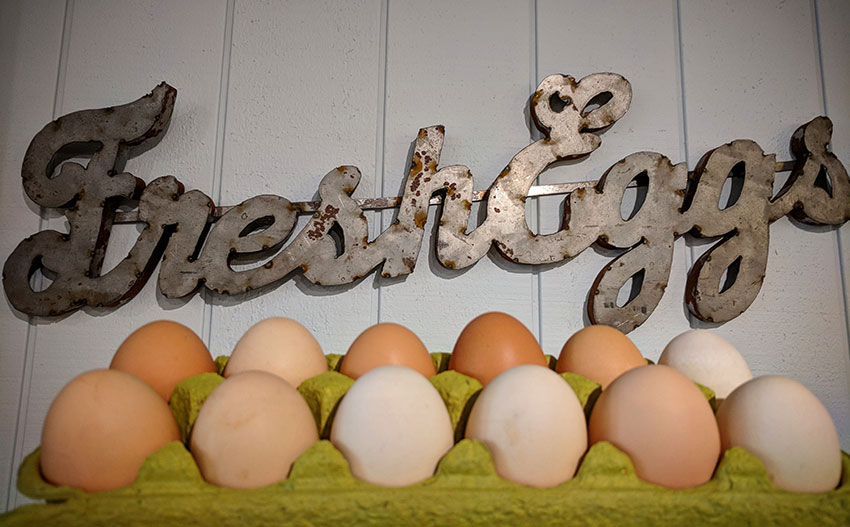
The Farmacy
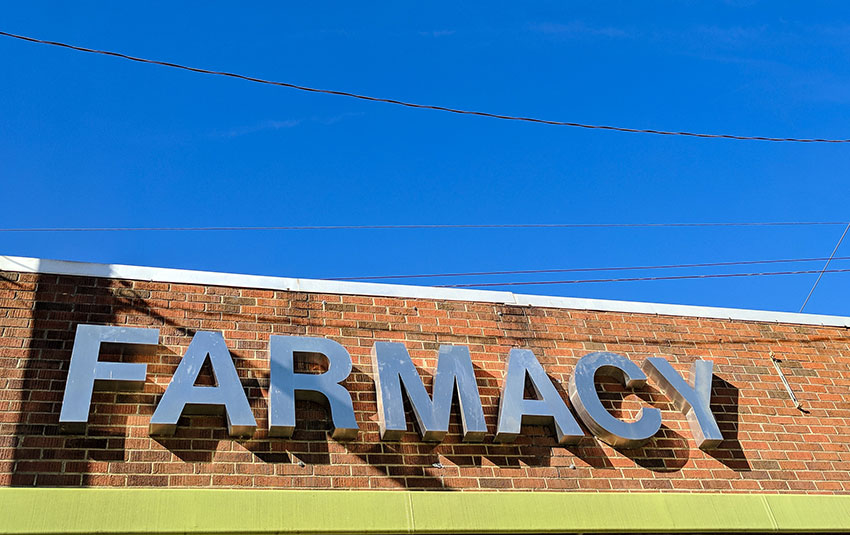
The Farmacy
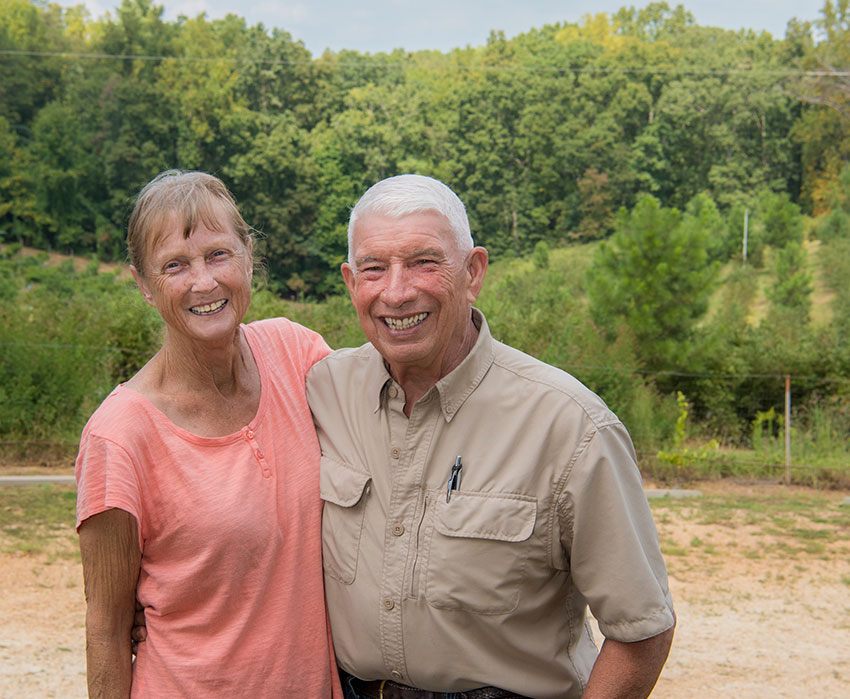
Walker and Ann Miller of the Happy Berry Farm (Photo by Mark Suskow)
The Happy Berry
The Happy Berry is a 22 acre small fruit farm specializing in marketing directly to the consumer. We grow seven different fruits including (in order of ripening) blackberries, blueberries, seedless table grapes, figs, muscadines and seedless muscadines, and seedless persimmons on the east side of lake Keowee. Black mulberries are in the ground but not yet producing. We also do fresh eggs and winter floral sticks and stems, mostly Pussy willows. (www.thehappyberry.com)
We see our role as providing fresh fruit for our community from June 1 to October 30 in a sustainable fashion. We believe the current food system is not sustainable in the long term, but is a significant competitor. Farming is not a widget business where you can get in then get out like the stock market. It is a long term commitment business where you build your assets, mostly soil and soil health, over time through "thick or thin." It is important that folks like Upstate Forever help educate the public about having a backup system should the 1-3 day supply in big box stores go asunder. Happiness for us is having a personal relationship with our customers.
Personally, we are committed to adapting to and mitigating climate change. We see ourselves as carbon farmers. It is our job to perennialize our cropping system, bio -engineer it to maximize biomass storage and ultimately sequester more carbon in soil and biomass than we use from conception to the final waste stream. It is not a job for which we are well paid... unless you consider cultural and social capital, then it is good. Ultimately, we see a tight net of farmers and local artisans (toilet paper, and towels; soaps; furniture makers, bakers and more) in a cultural and social network that is financially sustainable within the resources of the community/region, providing happiness now and for future generations.
What is the biggest benefit? In a world with finite natural resources, except for photosynthesis, that is currently exploiting those finite resources from mineral, energy to labor the biggest benefit is a sustainable community living within the natural resources of that community and/or eco region.
— Walker Miller | The Happy Berry, Six Mile | thehappyberry.com
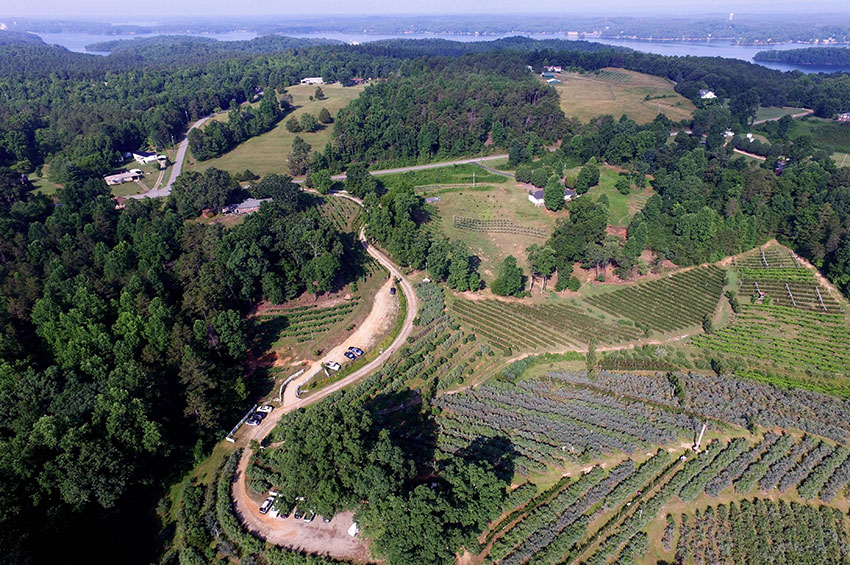
The Happy Berry Farm
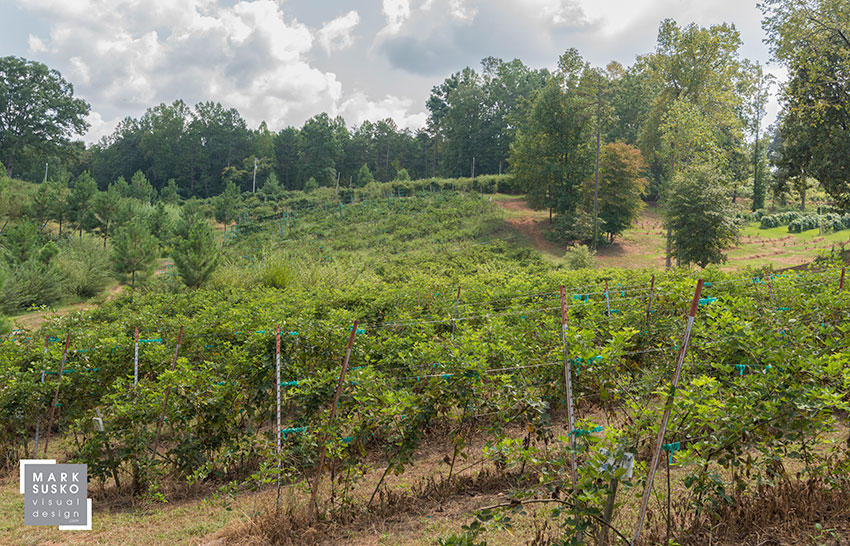
The Happy Berry Farm (Photo by Mark Suskow)
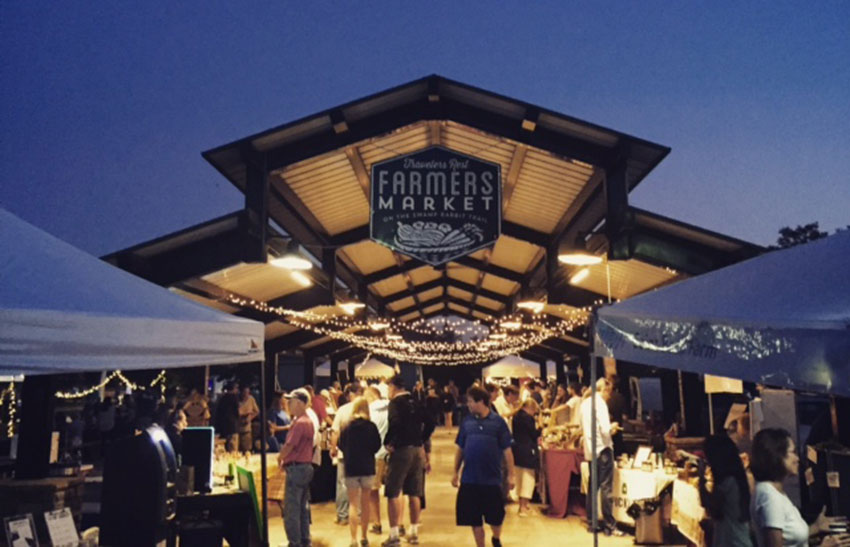
Travelers Rest Farmers Market
Travelers Rest Farmers Market
What is your organization, and how do you see your role in the Upstate's local food community?
The Upstate has a rich agricultural heritage. Travelers Rest Farmers Market serves to strike those chords of nostalgia while giving them a polished aesthetic to bring the relevance of the past into the present. Picture a whirring wheel; the market is the hub encircled by the spokes of community, farms, restaurants, nutrition, education, and local food. They manifest their full potential only when functioning collectively and can therefore propel the larger mechanism of the local food system. The market is a visual embodiment of the essential interdependence between all involved components. As the wheel rolls along, more components are picked up and integrated to strengthen the system and boost momentum. Farmers Markets are essential in facilitating and advocating for that movement.
In your opinion, what is the biggest benefit to buying/consuming local food?
Buying and consuming local food reinstates vital connection. Our society is very detached from the food process: buying local restores associative connection between a cow and the steak on our plate, honey and a swarming beehive, bread and the intensive hours to prepare such a product. Mass manufactured food has disconnected us from these fundamental human experiences. We have become accustomed and entitled to foods with unnaturally long shelf lives, due to added chemicals, and unrecognizable ingredients. Perhaps, it is healthy to be reminded that it is natural for a loaf of bread to only last a week.
Buying local reinstates connection with our neighbors, as we yield to dependence on one another for our food. We are a generation in desperate search of authenticity and transparency. Knowing your farmer demystifies the food buying experience, and insures a certain responsibility to quality. Reinstated connection to neighbors and the welfare of their families leads to connection to the local economy and betterment of the community at large.
It is imperative to protect those connections to the land, to our food, to ourselves, and to each other.
— Maranda Williams | Travelers Rest Farmers Market | travelersrestfarmersmarket.co
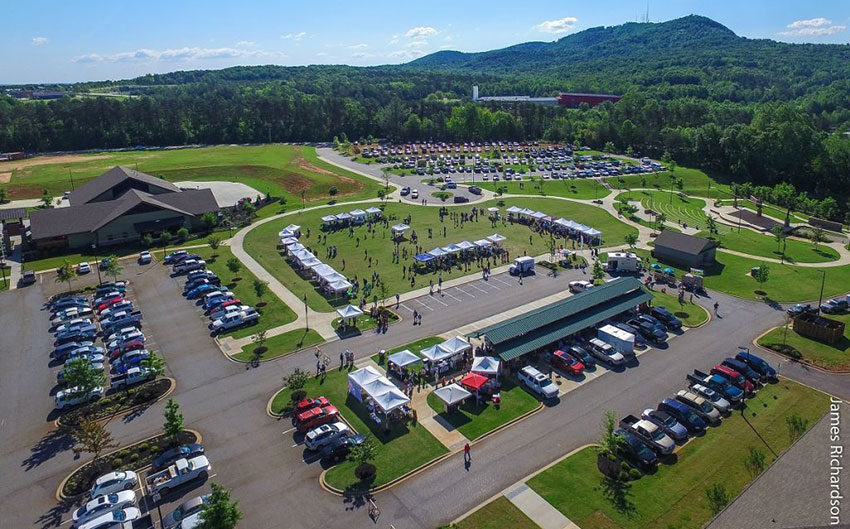
Travelers Rest Farmers Market (Photo by James Richardson)
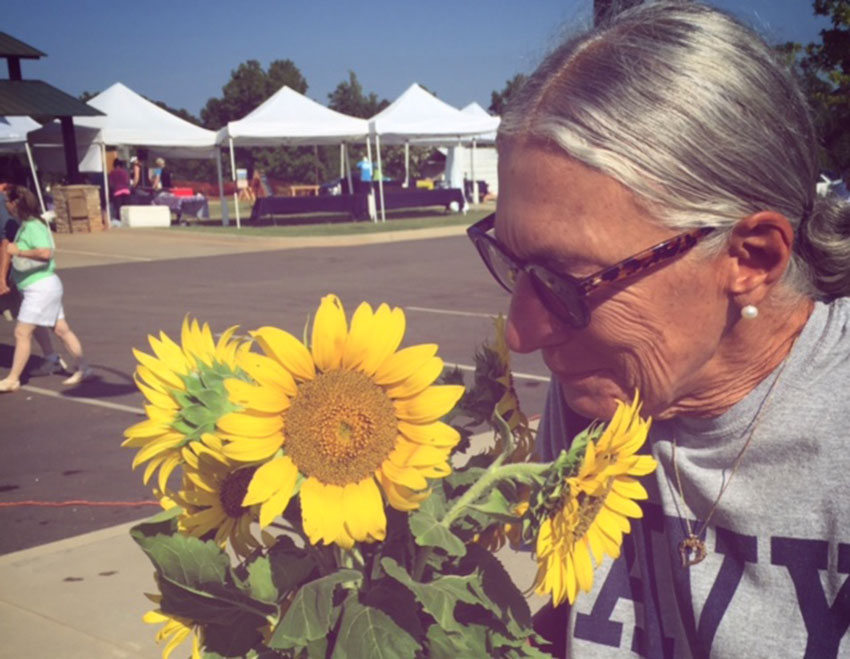
Travelers Rest Farmers Market
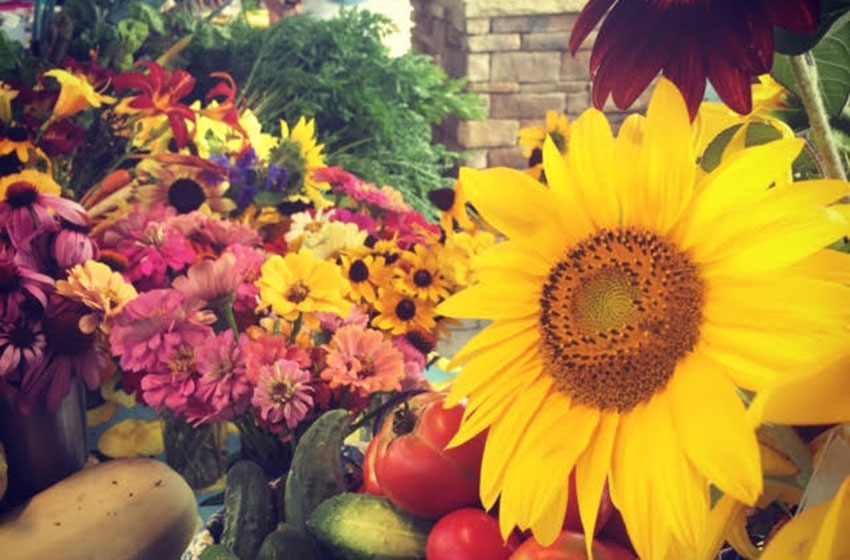
Travelers Rest Farmers Market
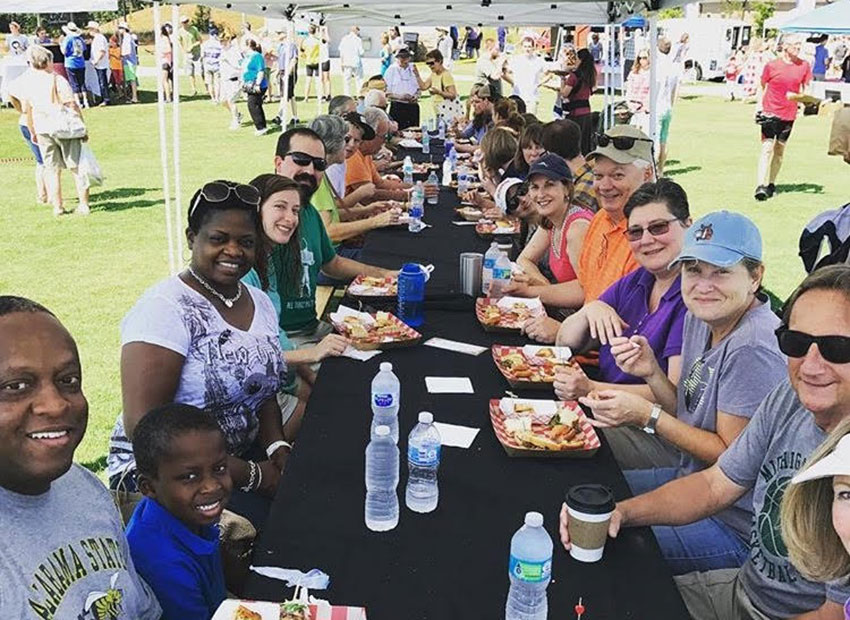
Travelers Rest Farmers Market
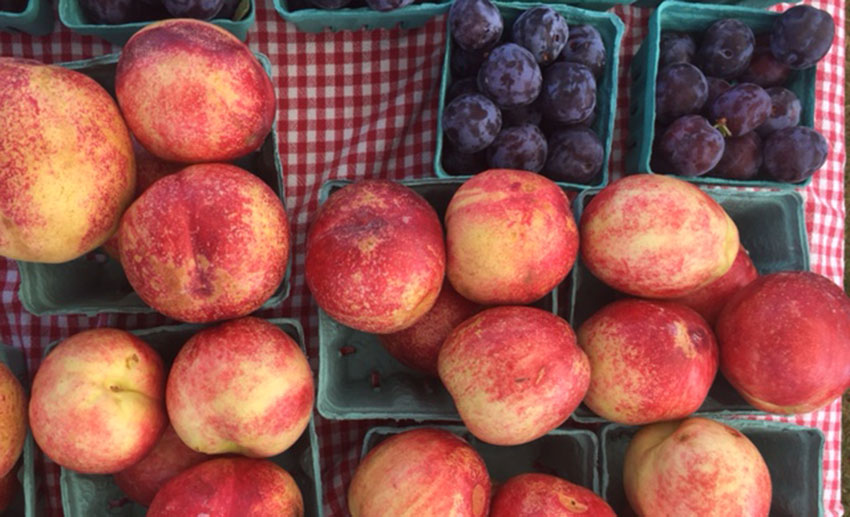
Travelers Rest Farmers Market
View more posts in this blog series at upstateforever.org/local-food. If you didn’t get a chance to respond, and would like to, please contact sboman@upstateforever.org. Participants’ views do not necessarily reflect the views of Upstate Forever.

